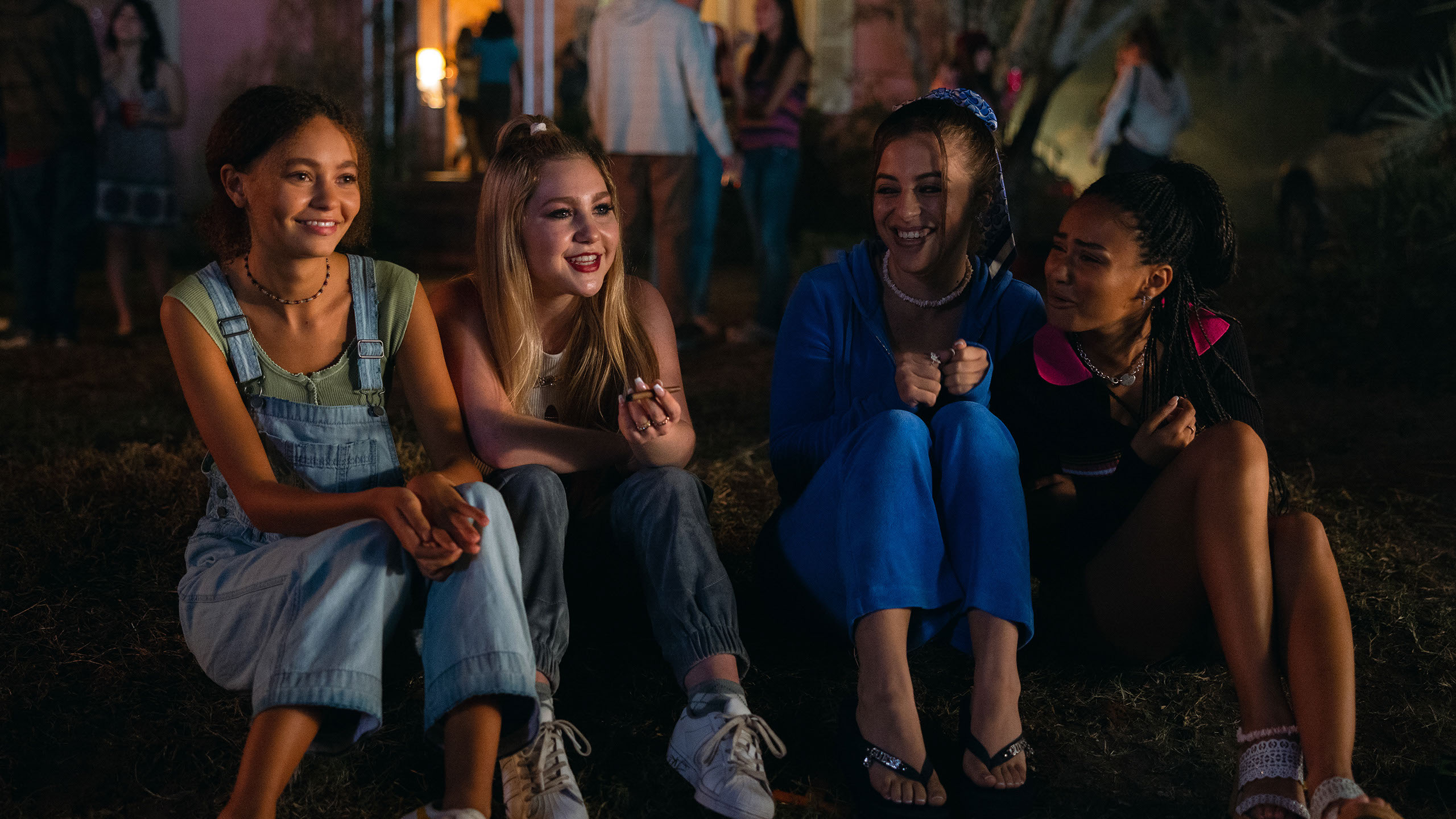
Sundance Film Review: Suncoast
Film Reviews
Sundance Review: Suncoast
Director: Laura Chinn
Freestyle Picture Company and 7 Deuce Entertainment
Premiere: 01.21
The concept of art as therapy is nothing new and making a film about your own traumatic experiences can lead to something truly special with the right mix of heart and authenticity. In the case of Suncoast, it feels a bit too much like writer/director Laura Chinn was meeting with her therapist and was told “just write a screenplay about your teenage experiences and see if you can work in a part for Woody Harrelson.”
In the early 2000s, a Florida teenager named Doris (Nico Parker, Dumbo) is in her senior year of high school and has no friends or life outside of her home. Max (Cree Kawa, Signs of Love), Doris’ older brother, has inoperable brain cancer that has spread throughout his body, leaving him unresponsive for some time. Kristine (Laura Linney, Ozark), their widowed and icy mother, works long waitressing shifts to pay for Max’s medical bills, leaving Doris to care for him much of the time. Kristine has decided to take Max to Suncoast, a hospice care facility, for his final days. As it happens, Suncoast is getting a lot of attention at the moment due to the presence of another patient: Terri Shaivo, who has had her feeding tube removed according to the wishes of her husband, putting her at the center of the “right to die” debate and causing Christian protestors to descend upon Suncoast from all the country. Enter Paul (Woody Harrelson, The Edge of Seventeen), a friendly protester who bonds with Doris over their shared presence in the same labored screenplay.
Laura Chinn’s brother really did pass away in the same care center where Terri Shaivo was staying and the film is inspired by her own experiences. This makes it awkward to complain that it feels like an contrivance, yet the fact remains that the only way it plays into the story at all is to introduce the character of Paul and to give Katherine the occasional excuse to argue with a police officer about why it’s so hard to get in and out of the facility where her son is dying. Shaivo most certainly should not be the focal point of the story, but she manages only to serve as a distraction. It’s easy enough to get swept up in Suncoast while you’re watching it, and there’s even some degree of emotional involvement despite the fact that there’s not a single character in it—only stock character types— and the dialogue all feels trite and forced. The Doris-Paul relationship is kind of cute, yet it’s unconvincing to say the least. Is Paul a religious zealot who is driven to travel a distance in order to camp outside a hospital to protest the actions of Shiavo’s “psycho” husband, or is he the chill cool uncle who shares his cigarettes? The interludes of Paul teaching Doris to drive, buying her food and telling her that her Dad jokes belong in a different movie seem to be there either to pad the film out to feature length or because Chinn can’t decide whether Doris’ interaction with her schoolmates should be heartfelt and genuine or the second remake of Mean Girls to come out this year.
Parker gives a raw and touching performance that consistently lifts the film above the level of its problematic script and uninspired direction. When Doris watches old videos of her childhood with her brother, before the affliction riddled his body, the emotion is gut wrenching and Parker makes us feel every pang of guilt and the hole inside her heart as if we were trading places. These moments give us a powerful glimpse of the movie that Suncoast should have been, and thus their greatness serves to highlight the mediocrity that makes up most of the film. Linney and Harrelson give thoroughly Linney-esque and Harrelsonian performances that demonstrate that their roles are perfectly suited to Laura Linney and Woody Harrelson, respectively, but there is nothing fresh here from either of them.
Suncoast is a sad example of movie inspired by real life that is so preoccupied by trying to be a movie that the real life element is lost far too much of the time. It has its heart in the right place but its head is shoved firmly up the wrong one. It’s enough to make you cry on multiple levels. – Patrick Gibbs
Read more of SLUG‘s comprehensive coverage of the 2024 Sundance Film Festival.